Are we ready for a world where playing games becomes a way of learning?
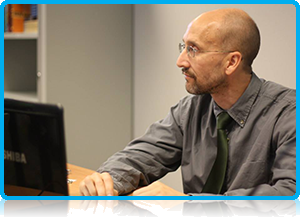 The age of online-education has arrived, but are we ready for a world where playing games becomes a way of learning - even in higher education? - “No, we are not talking about kindergarden games or Monopoly either, but one that promises the possibility of achieving a full MBA.” Anesca Smith talks to Wittenborg’s Visiting Professor, James Bowen PhD, of the University of Ottawa, about the development of an interactive, gamified MBA programme.
The age of online-education has arrived, but are we ready for a world where playing games becomes a way of learning - even in higher education? - “No, we are not talking about kindergarden games or Monopoly either, but one that promises the possibility of achieving a full MBA.” Anesca Smith talks to Wittenborg’s Visiting Professor, James Bowen PhD, of the University of Ottawa, about the development of an interactive, gamified MBA programme.
Students at WUAS got a taste of this world on Friday, courtesy of associate-professor James Bowen from the University of Ottawa. James and his team have been working on the development of an MBA, learnt through online games and simulation of the real business world.
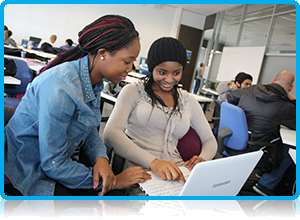 On Friday the MBA development team gave first- and second phase students at WUAS a test-run of an entrepreneurship tournament as part of project week activities.
On Friday the MBA development team gave first- and second phase students at WUAS a test-run of an entrepreneurship tournament as part of project week activities.
Bowen strongly believes the next generation of students will not go to a physical place to get their education, but that everything will be online.
“Students today expect to interact. They also know what differentiates them when they graduate is experience. If they don’t have experience, their degree is not as good as someone who has experience with a degree.”
“The younger generation is really interested in games and they are bored with lectures. They are bored with not being able to interact.”
What is a ‘gamefied MBA’ exactly?
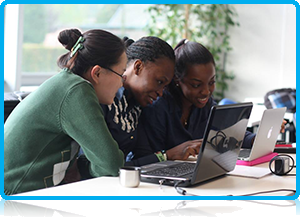 “A gamefied MBA is the use of simulations or games as a way of teaching and practicing the material and concepts in a business-environment. A traditional MBA student would attend lectures and they may use cases or do presentations and reports. With a gamefied MBA, what we want is the for the students to develop some understanding of a topic area and then directly practice that in a simulation or a game. The great thing about simulations and games is that the learning objectives are well-defined. We know exactly what we are going to learn in a game and we can measure that very precisely. So what I saw was that students in the learning environment are really bored. When someone stands up there and lectures for three hours... that old-school assembly-line kind of approach just doesn’t work with the new generation.”
“A gamefied MBA is the use of simulations or games as a way of teaching and practicing the material and concepts in a business-environment. A traditional MBA student would attend lectures and they may use cases or do presentations and reports. With a gamefied MBA, what we want is the for the students to develop some understanding of a topic area and then directly practice that in a simulation or a game. The great thing about simulations and games is that the learning objectives are well-defined. We know exactly what we are going to learn in a game and we can measure that very precisely. So what I saw was that students in the learning environment are really bored. When someone stands up there and lectures for three hours... that old-school assembly-line kind of approach just doesn’t work with the new generation.”
So students want to be entertained?
“They want to be engaged. They want to be part of the learning process. We learn as we do. So all these are changes in the university environment which can be addressed with games. It is a natural way to learn. Children learn through games - they are simulations of reality. Whether a child is playing with a doll or a truck or anything. They’re all simulations of reality. That’s how we learn as people. I think what’s important is that we are on the verge of a revolution in learning. The next generation will not go to a physical place to learn, it will be all online.”
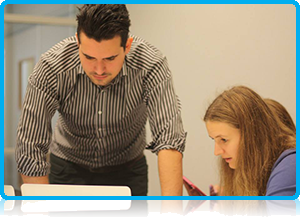 How has his revolutionary ideas been received by the academic community?
How has his revolutionary ideas been received by the academic community?
“It depends who you’re talking to. If you talk to the old-school academics they don’t get it.. But if you talk to people who are in the classroom, they see that the students are bored, frustrated and not happy. So those professors who are in the classroom receive it very well. They see that this generation, this is what they grew up with - games and simulations, interaction, collaboration.”
“For example, after playing a strategy-game with a group of students it emerged one group had several members who regularly plays online poker games. They took that skill to the game and did very well. They didn’t just figure out their strategy on how to win, they also figured out how they can make other people loose. A bit of a twist.”
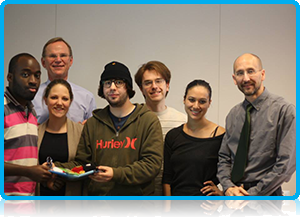
What about the social aspects if real classrooms were to disappear?
“Statistics have shown the social aspects through gaming is higher than among non- gamers. They are much more used to collaboration. There are some studies which have shown that people who are used to that level of collaboration then move that skill to the real world, not just (using it) online.”
WUAS is currently preparing the launch of an International MBA programme, with specialisations in Entrepreneurship & Innovation, IT Services, General Management & Consultancy and Hospitality & Services Management. The programme is expected to start in September 2014 and the content of 2 of the elective modules will be based on the gamified MBA programme being developed by Professor Bowen and his team.
WUP 11/11/2013
Interview by Anesca Smith
©WUAS Press
Anesca Smith is a Final Year IBA Hospitality Management student and has been employed as a writer for Wittenborg since May this year. Anesca is a journalist, writing for newspapers in her native South Africa, however is looking forward to working in the hospitality industry. Find out more at http://anescasmith.com/